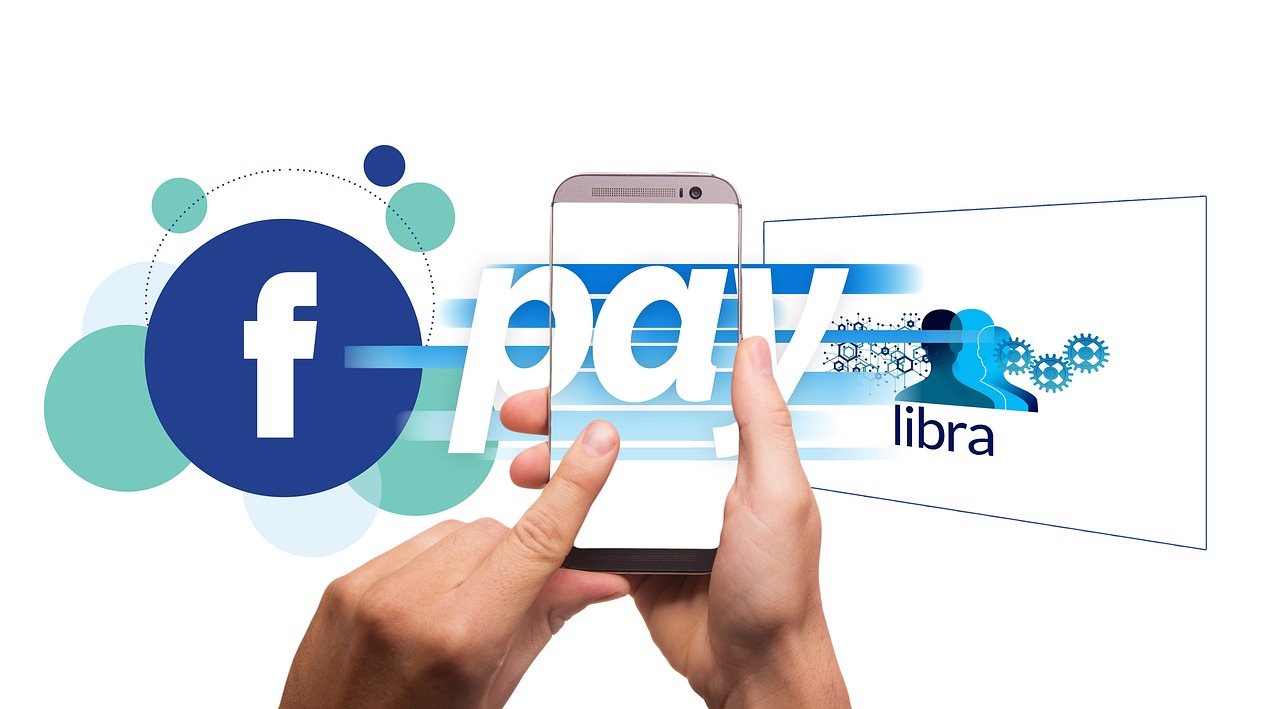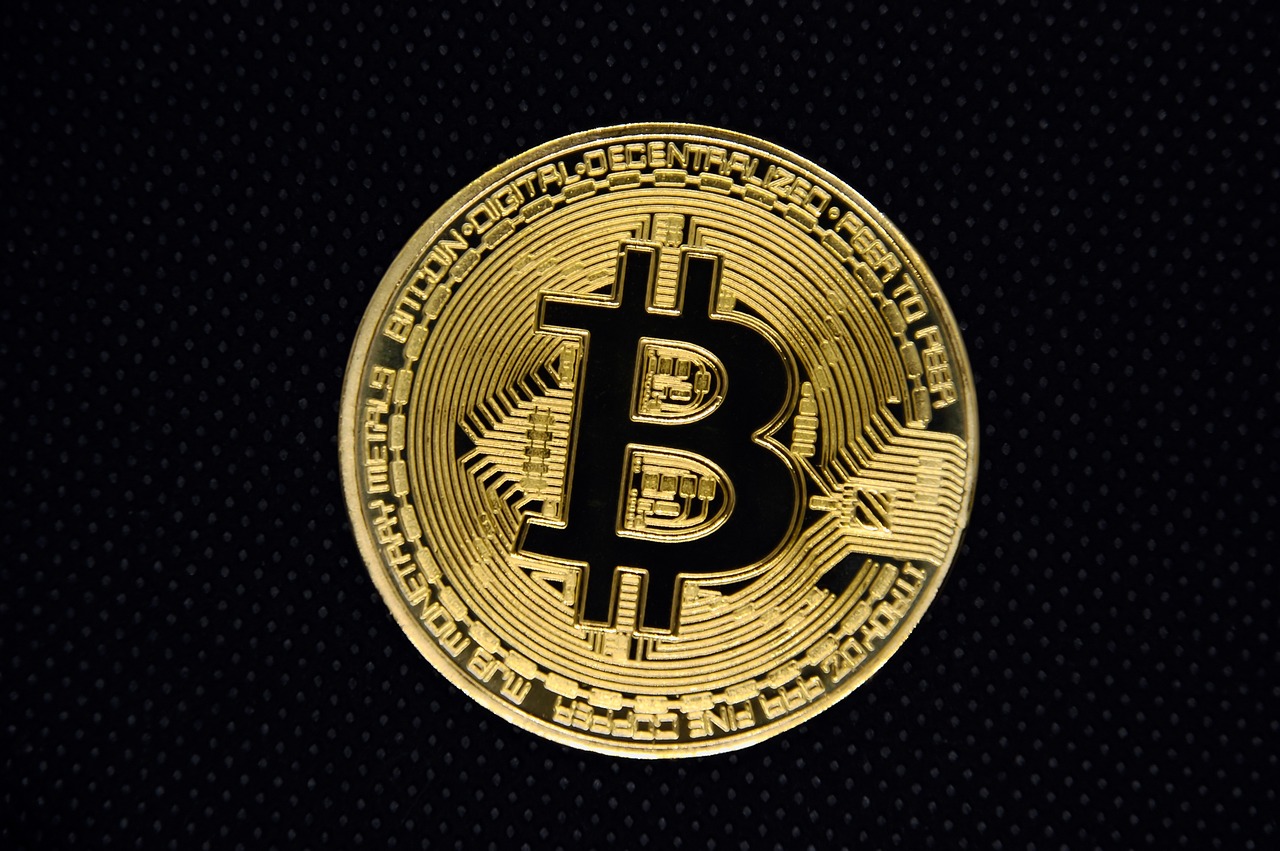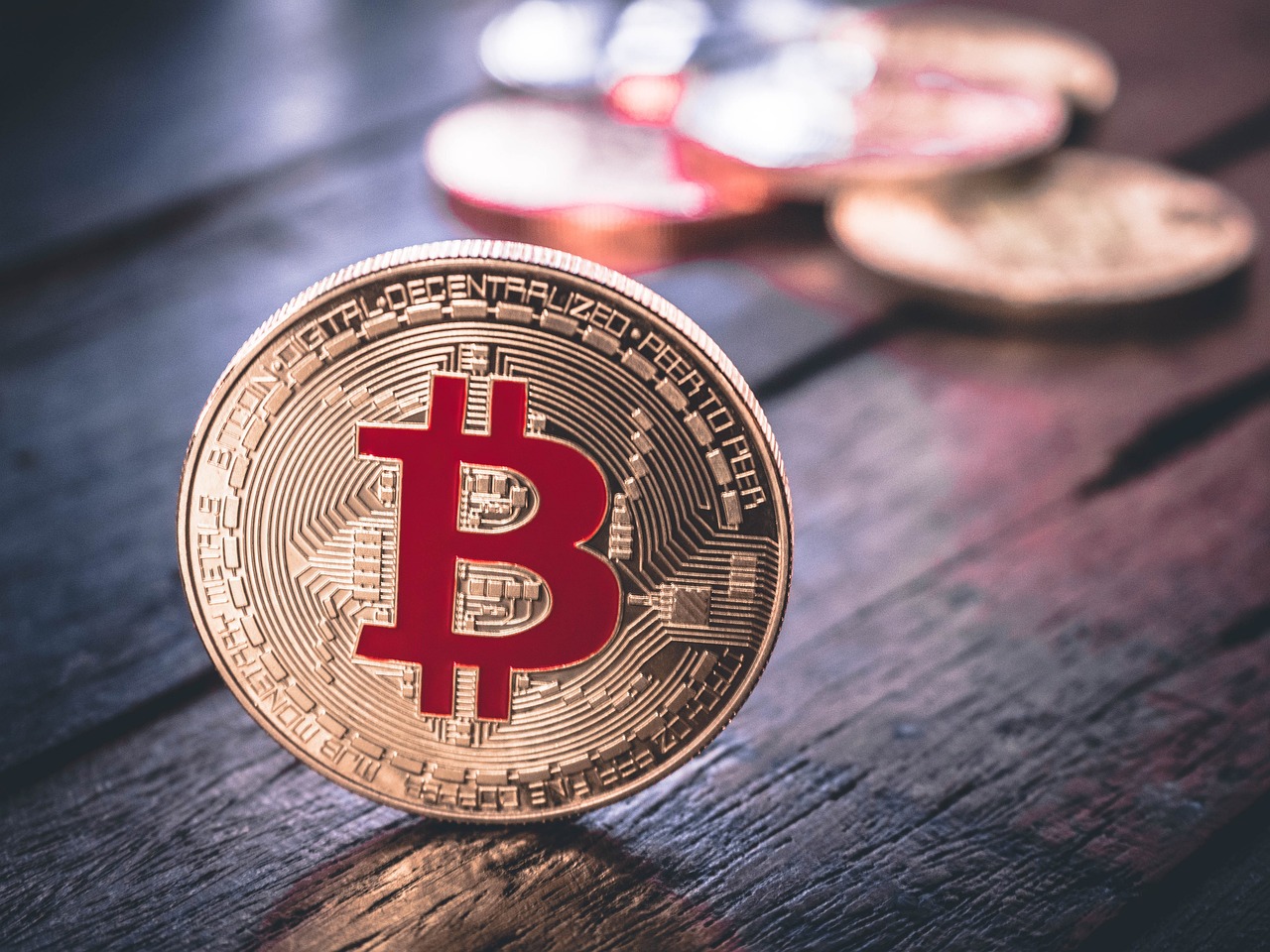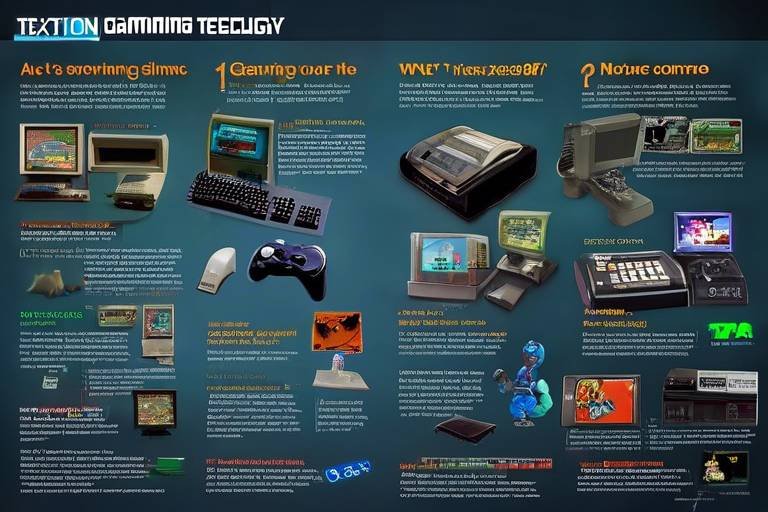How Blockchain Will Change Intellectual Property Rights
In today's fast-paced digital world, the concept of ownership is evolving, and blockchain technology is at the forefront of this transformation. Imagine a world where creators—be it artists, musicians, or inventors—can easily protect their work, maintain control over their intellectual property (IP), and ensure they receive fair compensation for their creations. This isn't just a dream; it's a reality that blockchain is paving the way for. By providing a secure, transparent, and decentralized system, blockchain has the potential to redefine how we understand and manage intellectual property rights.
At its core, blockchain is a decentralized ledger that records transactions across many computers in such a way that the registered information cannot be altered retroactively without the alteration of all subsequent blocks. This unique feature not only enhances security but also provides an unprecedented level of transparency. As we delve deeper into this article, we'll explore how these characteristics of blockchain can revolutionize IP rights, making it easier for creators to enforce their ownership and for consumers to trust the authenticity of the products they purchase.
As we navigate this exciting landscape, it's crucial to understand that the implications of blockchain extend beyond just protecting IP. They also foster innovation by allowing creators to experiment and share their ideas without the fear of theft or misuse. This shift could lead to a more vibrant and dynamic creative economy, where collaboration and sharing are encouraged, ultimately benefiting everyone involved.
So, buckle up as we embark on this journey to uncover how blockchain technology will not only change the way we think about intellectual property rights but also empower creators like never before!
Understanding intellectual property (IP) is essential to grasp how blockchain can revolutionize it. Intellectual property encompasses various forms of creations, including:
- Copyrights: Protects original works of authorship, such as music, literature, and art.
- Patents: Grants exclusive rights to inventors for their inventions, preventing others from making, using, or selling the invention without permission.
- Trademarks: Protects symbols, names, and slogans used to identify goods or services.
- Trade Secrets: Involves confidential business information that provides a competitive edge.
Each type of IP plays a vital role in protecting creators and innovators, ensuring they receive recognition and financial rewards for their contributions.
Blockchain technology serves as a decentralized ledger that can securely record transactions. Its key features include:
- Decentralization: No single entity controls the blockchain, reducing the risk of fraud and manipulation.
- Immutability: Once a transaction is recorded, it cannot be altered or deleted, ensuring a permanent record.
- Transparency: All participants can view transactions, fostering trust among users.
These features can be applied to IP rights management, providing a robust framework for ownership verification and enforcement.
One of blockchain's main advantages is its ability to provide enhanced security and transparency. With traditional IP rights management, the risk of infringement and unauthorized use is always looming. However, blockchain can significantly mitigate these risks by enabling creators to register their works on a public ledger. This process not only establishes a clear chain of ownership but also makes it incredibly difficult for anyone to claim ownership of a work they do not own.
Smart contracts are another groundbreaking aspect of blockchain technology that can automate and enforce agreements. Imagine being able to set up a contract that automatically pays you royalties every time your song is streamed online. This is not just a fantasy; it's a reality that smart contracts can offer. They streamline licensing processes and ensure that creators receive their due compensation without the need for intermediaries.
Blockchain enables decentralized ownership, allowing creators to retain control over their IP. This model is particularly beneficial for artists, musicians, and inventors in the digital age. By utilizing blockchain, creators can directly engage with their audience, sell their work, and receive payments without relying on traditional distribution channels that often take a hefty cut of their earnings.
Despite its potential, blockchain faces challenges in IP rights implementation. Regulatory hurdles, technological limitations, and the need for industry standards are significant obstacles that must be addressed before blockchain can be fully integrated into IP management systems.
Real-world examples illustrate the successful application of blockchain in IP rights management. Companies like Myco and Ascribe are leading the charge by providing platforms that allow creators to register their works on the blockchain, ensuring their rights are protected and enabling them to monetize their creations effectively.
Looking ahead, the future landscape of IP rights in light of blockchain advancements is promising. As technology evolves, we can expect to see trends that emphasize greater collaboration, transparency, and fairness in the creative economy. The legal frameworks surrounding IP will likely shift to accommodate these advancements, ensuring that creators are protected in this new digital frontier.
Q: How does blockchain ensure the authenticity of IP?
A: By recording every transaction on a public ledger, blockchain provides a transparent and immutable record of ownership, making it easy to verify the authenticity of IP.
Q: Can blockchain eliminate copyright infringement?
A: While blockchain can significantly reduce the risk of infringement, it cannot completely eliminate it. However, it provides tools for better enforcement and tracking of IP rights.
Q: What are smart contracts?
A: Smart contracts are self-executing contracts with the terms of the agreement directly written into code. They automate processes like royalty payments, making IP management more efficient.

The Basics of Intellectual Property
This article explores the transformative potential of blockchain technology on intellectual property rights, detailing its implications for ownership, enforcement, and innovation in various industries.
Understanding intellectual property (IP) is essential to grasp how blockchain can revolutionize it. At its core, IP refers to the creations of the mind, encompassing a range of intangible assets that can be legally protected. This includes inventions, designs, brands, and artistic works. Think of IP as the invisible currency that fuels innovation and creativity, allowing creators to benefit from their hard work. Without proper protection, these valuable ideas can easily be stolen or misused, which is where IP rights come into play.
There are several types of intellectual property that serve different purposes:
- Patents: These grant inventors exclusive rights to their inventions for a limited time, usually 20 years. This encourages innovation by ensuring inventors can profit from their ideas.
- Copyrights: These protect the expression of ideas, such as music, literature, and art, allowing creators to control the use of their work.
- Trademarks: These protect symbols, names, and slogans used to identify goods or services, ensuring that brands maintain their unique identity.
- Trade Secrets: These refer to confidential business information that provides a competitive edge, like recipes or manufacturing processes.
Each type of IP plays a crucial role in protecting creators and innovators. They provide a legal framework that not only safeguards their rights but also fosters an environment where creativity can thrive. Imagine a world where artists, inventors, and entrepreneurs can confidently share their ideas, knowing they have the legal backing to protect their work. This is the essence of intellectual property rights.
However, navigating the IP landscape can be complex. Different countries have varying laws and regulations, which can create challenges for creators, especially in our increasingly globalized world. Moreover, the rise of digital technology has blurred the lines of ownership, making it easier for IP to be infringed upon. This is where blockchain technology comes into play, offering innovative solutions to enhance the protection and management of intellectual property.
Blockchain technology serves as a decentralized ledger that can securely record transactions. This section provides an overview of its key features and how they can be applied to IP rights.
One of blockchain's main advantages is its ability to provide enhanced security and transparency. Here, we discuss how these features can protect IP from infringement and unauthorized use.
Smart contracts automate and enforce agreements, making them a powerful tool for IP management. This section explains how smart contracts can streamline licensing and royalty payments.
Blockchain enables decentralized ownership, allowing creators to retain control over their IP. This section explores how this model can benefit artists, musicians, and inventors in the digital age.
Despite its potential, blockchain faces challenges in IP rights implementation. This section addresses regulatory hurdles, technological limitations, and the need for industry standards.
Real-world examples illustrate the successful application of blockchain in IP rights management. This section highlights innovative projects and companies leveraging blockchain technology.
Looking ahead, this section discusses the future landscape of IP rights in light of blockchain advancements, emphasizing potential trends and shifts in legal frameworks.
Here are some common questions regarding intellectual property and blockchain:
- What is the primary benefit of using blockchain for IP? Blockchain provides a secure and transparent way to track ownership and usage of intellectual property, reducing the risk of infringement.
- Can blockchain completely eliminate IP theft? While it cannot eliminate theft entirely, it significantly enhances protection and creates a clearer chain of ownership.
- How do smart contracts work in IP management? Smart contracts automate agreements, ensuring that terms are met and payments are processed without the need for intermediaries.

Introduction to Blockchain Technology
Welcome to the fascinating world of blockchain technology! Imagine a digital world where transactions are not only secure but also transparent and tamper-proof. That's what blockchain brings to the table. At its core, blockchain is a decentralized ledger that records transactions across many computers in such a way that the registered transactions cannot be altered retroactively. This means that once something is recorded, it’s set in stone—similar to how a library archives books that can’t be rewritten. But what does this mean for intellectual property (IP) rights?
To understand the impact of blockchain on IP, we must first explore its key features:
- Decentralization: Unlike traditional databases controlled by a single entity, blockchain operates on a network of computers (nodes), making it less vulnerable to hacking and fraud.
- Transparency: Every transaction is visible to all participants in the network, providing a clear audit trail.
- Immutability: Once a transaction is added to the blockchain, it cannot be changed or deleted, ensuring the integrity of the data.
- Security: Advanced cryptographic techniques protect the data, making unauthorized access extremely difficult.
These features create an environment ripe for innovation in managing and protecting intellectual property. Imagine artists being able to register their work on a blockchain, ensuring that their rights are protected without the need for intermediaries. Think about how this could streamline the process of proving ownership and authenticity, thereby reducing disputes and enhancing trust among creators and consumers alike.
Moreover, blockchain technology can facilitate global access to IP rights management. In a world where digital content can be shared across borders in an instant, having a universal system that recognizes and protects IP rights is crucial. With blockchain, creators could easily license their work to a global audience while maintaining control over how their creations are used. This is akin to having a passport that works in every country, allowing you to travel freely without worrying about borders or regulations.
As we delve deeper into how blockchain can transform IP rights, it’s essential to keep an open mind. The technology is still evolving, and while it presents remarkable opportunities, it also poses challenges that we must navigate carefully. So, buckle up as we explore this exciting intersection of technology and creativity!

Enhanced Security and Transparency
When we think about intellectual property (IP), security and transparency are two pillars that hold the entire structure together. Imagine creating a masterpiece—a song, a novel, or a groundbreaking invention. Now imagine that someone else claims it as their own. Heart-wrenching, right? This is where blockchain technology steps in like a superhero, ready to defend your creative rights. By utilizing a decentralized ledger, blockchain ensures that every transaction related to IP is recorded securely and transparently.
At its core, blockchain operates on a network of computers that work together to verify transactions. This means that once your IP is registered on a blockchain, it becomes nearly impossible to alter or erase. Each entry is time-stamped and linked to previous entries, creating a chain of evidence that can be traced back to the original creator. This level of security not only protects against unauthorized use but also acts as a deterrent against potential infringers who know that any attempt to claim your work would be easily exposed.
Moreover, the transparency offered by blockchain is revolutionary. It allows anyone to view the history of an IP asset, making it clear who the rightful owner is at any given moment. This is particularly beneficial in industries like music and art, where ownership disputes can often lead to lengthy legal battles. With blockchain, artists can showcase their work along with its provenance, ensuring that audiences know exactly who created it and when. As a result, the trust between creators and consumers is strengthened, fostering a more supportive environment for innovation.
Consider this: in traditional systems, tracking the ownership and history of IP can be akin to finding a needle in a haystack. But with blockchain, it’s like having a clear, well-lit path that anyone can follow. This not only simplifies the process for creators but also for potential buyers and collaborators. They can easily verify the authenticity of a piece of art or the originality of a song, which enhances the overall market for creative works.
However, it’s essential to recognize that while blockchain provides enhanced security and transparency, it is not a panacea. The technology is still evolving, and there are challenges to overcome, such as the need for widespread adoption and integration with existing legal frameworks. Nevertheless, the potential benefits are undeniable. By embracing blockchain, we can create a more secure and transparent landscape for intellectual property rights, paving the way for a future where creators are better protected and rewarded for their innovations.

Smart Contracts in IP Management
Imagine a world where agreements are executed automatically, without the need for intermediaries or lengthy negotiations. This is the promise of smart contracts, a revolutionary feature of blockchain technology that can transform the management of intellectual property (IP). But what exactly are smart contracts, and how can they streamline IP management? Well, let’s break it down!
At its core, a smart contract is a self-executing contract with the terms of the agreement directly written into code. This means that once certain conditions are met, the contract automatically enforces the agreed-upon actions. For instance, if an artist sells a digital artwork, a smart contract can automatically transfer the ownership of the artwork while simultaneously distributing the payment without needing a third-party intermediary. This not only speeds up the transaction process but also reduces costs significantly.
One of the most exciting aspects of smart contracts in IP management is their ability to automate licensing agreements. Traditionally, licensing can be a cumbersome process involving negotiations, paperwork, and potential disputes over terms. With smart contracts, these agreements can be coded into the blockchain, ensuring that all parties understand their rights and obligations clearly. For example, if a musician licenses their song for use in a film, the smart contract can specify the duration of the license, the payment terms, and even how royalties are distributed every time the song is played. This transparency fosters trust among creators and users alike.
Moreover, smart contracts can facilitate real-time royalty payments. This means that every time a piece of IP is used—be it a song played on a streaming service or a patented technology applied in a product—the smart contract can automatically calculate and distribute the royalties to the rightful owners without delays. Imagine the relief for artists and inventors who often wait months, if not years, to receive their due payouts!
However, it's essential to note that while smart contracts offer numerous advantages, they also come with their own set of challenges. The code must be meticulously crafted to ensure that it accurately reflects the intentions of the parties involved. A simple error in the code could lead to unintended consequences, potentially jeopardizing the rights of the IP holders. Therefore, legal and technical expertise is crucial in drafting these contracts.
To illustrate the impact of smart contracts on IP management, consider the following table showcasing their benefits:
| Benefits | Description |
|---|---|
| Automation | Smart contracts execute automatically when conditions are met, reducing the need for manual intervention. |
| Cost-Effectiveness | By eliminating intermediaries, smart contracts lower transaction costs significantly. |
| Transparency | All parties can view the contract terms and transaction history, fostering trust. |
| Real-Time Payments | Royalties and payments can be distributed instantly, improving cash flow for creators. |
In conclusion, smart contracts are not just a buzzword; they represent a fundamental shift in how intellectual property can be managed. By automating processes, enhancing transparency, and ensuring timely payments, they empower creators while simultaneously minimizing the risks associated with traditional IP management. As we continue to navigate this digital age, embracing smart contracts could very well be the key to unlocking unprecedented opportunities for innovation and creativity.
- What are smart contracts? Smart contracts are self-executing contracts with the terms directly written into code, allowing for automatic enforcement of agreements.
- How do smart contracts benefit IP management? They streamline licensing, automate royalty payments, and enhance transparency, reducing costs and increasing trust.
- Are there risks associated with smart contracts? Yes, errors in the code can lead to unintended consequences, so careful drafting and legal oversight are essential.
- Can smart contracts be used for all types of intellectual property? While they are particularly effective for digital assets, they can be adapted for various forms of IP, including patents and trademarks.

Decentralized Ownership Models
In the ever-evolving landscape of intellectual property (IP), the concept of decentralized ownership is emerging as a game-changer. Imagine a world where artists, musicians, and inventors can maintain full control over their creations without the interference of traditional gatekeepers like publishers or record labels. This shift is primarily driven by blockchain technology, which allows for a more democratic approach to ownership and rights management.
At its core, decentralized ownership means that the rights to a piece of IP are not held by a single entity but are distributed across a network of users. This model fosters a sense of community and collaboration, enabling creators to engage directly with their audience. For instance, an artist can sell their artwork as a non-fungible token (NFT) on a blockchain platform, ensuring that they receive a fair share of the profits while maintaining control over their work. This is a stark contrast to traditional models where intermediaries often take a significant cut of the revenue.
One of the most significant advantages of decentralized ownership is the elimination of middlemen. In traditional IP frameworks, creators often find themselves at the mercy of complex contracts and licensing agreements that can be difficult to navigate. Blockchain simplifies this process by using smart contracts, which automatically execute terms and conditions when certain criteria are met. This not only speeds up transactions but also reduces the potential for disputes, as the terms are transparent and immutable.
Furthermore, decentralized ownership can lead to greater innovation. When creators have more control over their work, they are more likely to experiment and push boundaries. For example, musicians can release their music directly to fans, receiving immediate feedback and even funding for future projects through platforms that utilize blockchain technology. This not only empowers creators but also enhances the overall cultural landscape by allowing for a wider variety of voices and styles to flourish.
However, it's essential to acknowledge that this model is not without its challenges. The concept of decentralized ownership is still relatively new, and many creators are unsure about how to navigate this uncharted territory. Additionally, the legal frameworks surrounding IP rights are often outdated and may not adequately address the complexities introduced by blockchain. As such, it is crucial for industry stakeholders to collaborate and establish clear guidelines that protect creators while fostering innovation.
In conclusion, decentralized ownership models enabled by blockchain technology represent a significant shift in how we think about intellectual property rights. By empowering creators and removing intermediaries, this approach not only enhances security and transparency but also paves the way for a more vibrant and diverse creative ecosystem. As we move forward, it will be fascinating to see how these models evolve and influence the future of IP.
- What is decentralized ownership? Decentralized ownership refers to a model where the rights to intellectual property are distributed among a network of users rather than held by a single entity.
- How does blockchain facilitate decentralized ownership? Blockchain allows for secure and transparent transactions through smart contracts, enabling creators to maintain control over their work without intermediaries.
- What are the benefits of decentralized ownership for creators? Benefits include greater control over their work, direct engagement with audiences, and reduced reliance on traditional gatekeepers.
- Are there challenges associated with decentralized ownership? Yes, challenges include navigating legal frameworks and ensuring that creators understand how to utilize blockchain technology effectively.

Challenges and Limitations
While the potential of blockchain technology to transform intellectual property (IP) rights is undeniably exciting, it is essential to consider the that accompany its implementation. One of the primary hurdles is the regulatory landscape. As blockchain is still a relatively new technology, many jurisdictions lack clear regulations regarding its use in IP rights management. This uncertainty can deter creators from adopting blockchain solutions, as they may fear legal repercussions or complications.
Moreover, the technological limitations of blockchain cannot be overlooked. For instance, while blockchain provides a secure and transparent ledger, the technology itself can be complex and challenging to navigate for those without a technical background. This complexity can create a barrier to entry for many artists and innovators who may not have the resources to understand or implement blockchain solutions effectively.
Another significant challenge is the need for industry standards. Currently, there is no universally accepted framework for how blockchain should be integrated into IP rights management. This lack of standardization can lead to fragmentation in the market, where different platforms and systems operate in silos, making it difficult for creators to manage their rights across various channels. Imagine trying to navigate a maze without a map—this is the reality many face when dealing with disparate blockchain systems.
Additionally, the issue of interoperability arises when different blockchain networks cannot communicate with each other. This can hinder the seamless transfer of IP rights and licensing agreements, resulting in inefficiencies and potential conflicts. For example, if one artist registers their work on one blockchain platform, but another party operates on a different blockchain, coordinating rights and royalties can become a logistical nightmare.
Lastly, there is the challenge of public perception and understanding of blockchain technology. Many people still associate blockchain primarily with cryptocurrencies, leading to skepticism about its applicability in other fields, including IP. Educating creators and the public about the benefits and functionalities of blockchain in IP rights management is crucial for widespread adoption.
In summary, while blockchain offers a promising avenue for revolutionizing intellectual property rights, it is essential to address these challenges head-on. By fostering collaboration among industry stakeholders, developing clear regulations, and educating the public, we can pave the way for a future where blockchain technology enhances IP rights management in a meaningful and accessible way.
- What are the main challenges of implementing blockchain in intellectual property rights?
Some of the key challenges include regulatory uncertainties, technological complexities, the need for industry standards, interoperability issues, and public perception. - How can blockchain improve intellectual property rights?
Blockchain can enhance security, transparency, and efficiency in managing IP rights, making it easier for creators to protect and monetize their work. - Is blockchain technology widely accepted in the IP sector?
While interest is growing, widespread acceptance is still hindered by regulatory and technological challenges.

Case Studies of Blockchain in IP
In recent years, numerous innovative projects have emerged that showcase the transformative effects of blockchain technology on intellectual property (IP) rights. These case studies not only highlight the potential of blockchain to revolutionize IP management but also demonstrate practical applications that are already making waves across various industries. One notable example is Ascribe, a platform that allows artists to register their digital artwork on the blockchain. By doing so, creators can establish provenance, thereby ensuring that their work is recognized and protected against unauthorized use. This not only empowers artists but also provides collectors with confidence in the authenticity of their purchases.
Another compelling case study is the use of blockchain in the music industry, particularly through platforms like Myco. Myco allows musicians to tokenize their music, enabling them to retain control over their rights and receive direct compensation from fans. This model eliminates intermediaries, ensuring that a more significant portion of the revenue goes directly to the creators. Imagine a world where musicians can share their work without worrying about exploitation by record labels or streaming services; blockchain makes this a reality.
Additionally, the Open Music Initiative is an excellent example of how blockchain can facilitate transparency and trust within the music ecosystem. By creating a decentralized database of music rights, it allows artists, producers, and labels to manage their IP more efficiently. This initiative aims to solve the longstanding problem of royalty distribution, which has often been fraught with confusion and delays. With blockchain, every transaction is recorded, providing a clear trail of ownership and rights management.
In the realm of literature, Po.et is pioneering a blockchain-based protocol for writers and publishers. This platform enables authors to timestamp their works, proving ownership and establishing a clear chain of custody. Such a system not only protects writers from plagiarism but also allows them to monetize their content more effectively through smart contracts. Imagine an author being able to receive payments automatically every time their work is used or shared—a dream scenario that blockchain technology can make possible.
Furthermore, the fashion industry is also beginning to embrace blockchain technology, with companies like Provenance leading the charge. Provenance utilizes blockchain to create a transparent supply chain, allowing consumers to verify the authenticity and ethical sourcing of products. This not only helps brands protect their IP but also builds trust with consumers who are increasingly concerned about sustainability and ethical practices. By providing a verifiable history of a product, brands can safeguard their designs and innovations from counterfeiting.
As we can see from these case studies, blockchain is not just a buzzword; it is a powerful tool that is reshaping the landscape of intellectual property rights. By enhancing security, ensuring transparency, and enabling direct transactions, blockchain technology is empowering creators and innovators across various sectors. The potential for further advancements is immense, and as more industries explore the possibilities, we can expect to see even more groundbreaking applications of this technology in the realm of IP.
- What is blockchain technology? Blockchain is a decentralized digital ledger that securely records transactions across multiple computers, ensuring that the data cannot be altered retroactively.
- How can blockchain protect intellectual property? By providing a transparent and secure method of recording ownership and rights, blockchain helps prevent unauthorized use and infringement of intellectual property.
- What are smart contracts? Smart contracts are self-executing contracts with the terms of the agreement directly written into code, allowing for automated enforcement and management of IP rights.
- Are there any downsides to using blockchain for IP? Yes, challenges include regulatory hurdles, technological limitations, and the need for standardized practices within various industries.

The Future of Intellectual Property Rights
The future of intellectual property (IP) rights is poised for a **dramatic transformation** thanks to the integration of blockchain technology. As we look ahead, it’s clear that the landscape of IP will evolve significantly, influenced by the unique features of blockchain, such as decentralization, security, and transparency. Imagine a world where creators have complete control over their work, where every transaction is recorded immutably, and where the risk of infringement is minimized. This is not just a dream; it’s becoming a reality.
With blockchain, the traditional models of IP rights are being redefined. For instance, artists and musicians can directly connect with their audiences without intermediaries, ensuring they receive fair compensation for their creations. This **decentralized ownership model** empowers creators, allowing them to set their own terms and retain a larger share of their earnings. It’s akin to being the captain of your own ship, navigating the waters of creativity without being tethered to the whims of traditional gatekeepers.
Moreover, the **smart contracts** enabled by blockchain technology will streamline the licensing process. These self-executing contracts automatically enforce the terms agreed upon by parties, reducing the need for lengthy negotiations and legal battles. Imagine a scenario where a musician uploads a song, and the smart contract automatically distributes royalties each time the song is played. This efficiency not only saves time but also ensures that creators are compensated fairly and promptly.
However, the future is not without its challenges. As blockchain technology continues to advance, it will need to overcome regulatory hurdles and technological limitations. Governments and organizations must work together to establish industry standards that protect both creators and consumers. This might feel like trying to build a bridge while crossing a river, but collaboration will be key to ensuring that the benefits of blockchain are realized across all sectors.
Looking ahead, we can expect a shift in legal frameworks surrounding IP rights. As blockchain becomes more prevalent, laws may evolve to accommodate new forms of ownership and distribution. This could lead to a more equitable system where innovation is encouraged, and creators are protected. The potential for **innovation** is enormous, and as we embrace these changes, we may witness a renaissance in creativity and invention.
In conclusion, the future of intellectual property rights is not just about technology; it’s about empowering creators and fostering a culture of innovation. As we stand on the brink of this new era, it’s essential to embrace the possibilities that blockchain offers. The journey may be challenging, but the rewards—greater security, transparency, and fairness—are worth the effort. The world of IP is evolving, and those who adapt will thrive in this brave new world.
- How does blockchain enhance the security of intellectual property rights?
Blockchain technology provides a secure and immutable ledger that records every transaction related to an IP asset, making it difficult for unauthorized parties to alter or infringe upon the rights of creators.
- What are smart contracts, and how do they relate to IP?
Smart contracts are self-executing contracts with the terms of the agreement directly written into code. They automate processes such as licensing and royalty payments, ensuring that creators receive compensation without the need for intermediaries.
- What challenges does blockchain face in the realm of intellectual property?
Challenges include regulatory uncertainty, the need for industry standards, and technological limitations that must be addressed to fully realize the potential of blockchain in IP rights management.
- Will blockchain change how we perceive ownership of creative works?
Yes, blockchain has the potential to redefine ownership models, allowing creators to maintain greater control over their works and directly engage with their audience.
Frequently Asked Questions
- What is intellectual property (IP)?
Intellectual property (IP) refers to creations of the mind, such as inventions, literary and artistic works, designs, symbols, names, and images used in commerce. It plays a crucial role in protecting the rights of creators and innovators, ensuring they can benefit from their work.
- How does blockchain technology work?
Blockchain technology is a decentralized digital ledger that records transactions across many computers in a way that the registered transactions cannot be altered retroactively. This ensures security and transparency, making it an ideal solution for managing intellectual property rights.
- What are the benefits of using blockchain for IP rights?
Blockchain offers enhanced security, transparency, and traceability, which can significantly reduce the risk of IP infringement. It allows for real-time tracking of ownership and usage, making it easier to enforce IP rights and ensuring creators receive fair compensation.
- What are smart contracts and how do they relate to IP?
Smart contracts are self-executing contracts with the terms of the agreement directly written into code. In the context of IP, they automate licensing agreements and royalty payments, ensuring that creators are paid instantly and accurately when their work is used.
- Can blockchain change ownership models for creators?
Absolutely! Blockchain allows for decentralized ownership models, meaning creators can maintain control over their intellectual property. This is particularly beneficial for artists and musicians, as it empowers them to manage their work without relying on traditional intermediaries.
- What challenges does blockchain face in IP rights implementation?
Despite its potential, blockchain technology faces several challenges, including regulatory hurdles, technological limitations, and the need for industry-wide standards. These factors can hinder widespread adoption and effective implementation in the realm of intellectual property rights.
- Are there real-world examples of blockchain being used in IP management?
Yes, several innovative projects and companies are leveraging blockchain for IP management. For instance, platforms like Ascribe and Myco offer solutions for artists to register and sell their digital art securely on the blockchain.
- What does the future hold for intellectual property rights with blockchain?
The future of intellectual property rights is likely to be shaped by advancements in blockchain technology. As more industries adopt this technology, we can expect significant shifts in legal frameworks and practices, leading to more robust protection for creators and innovators.



















